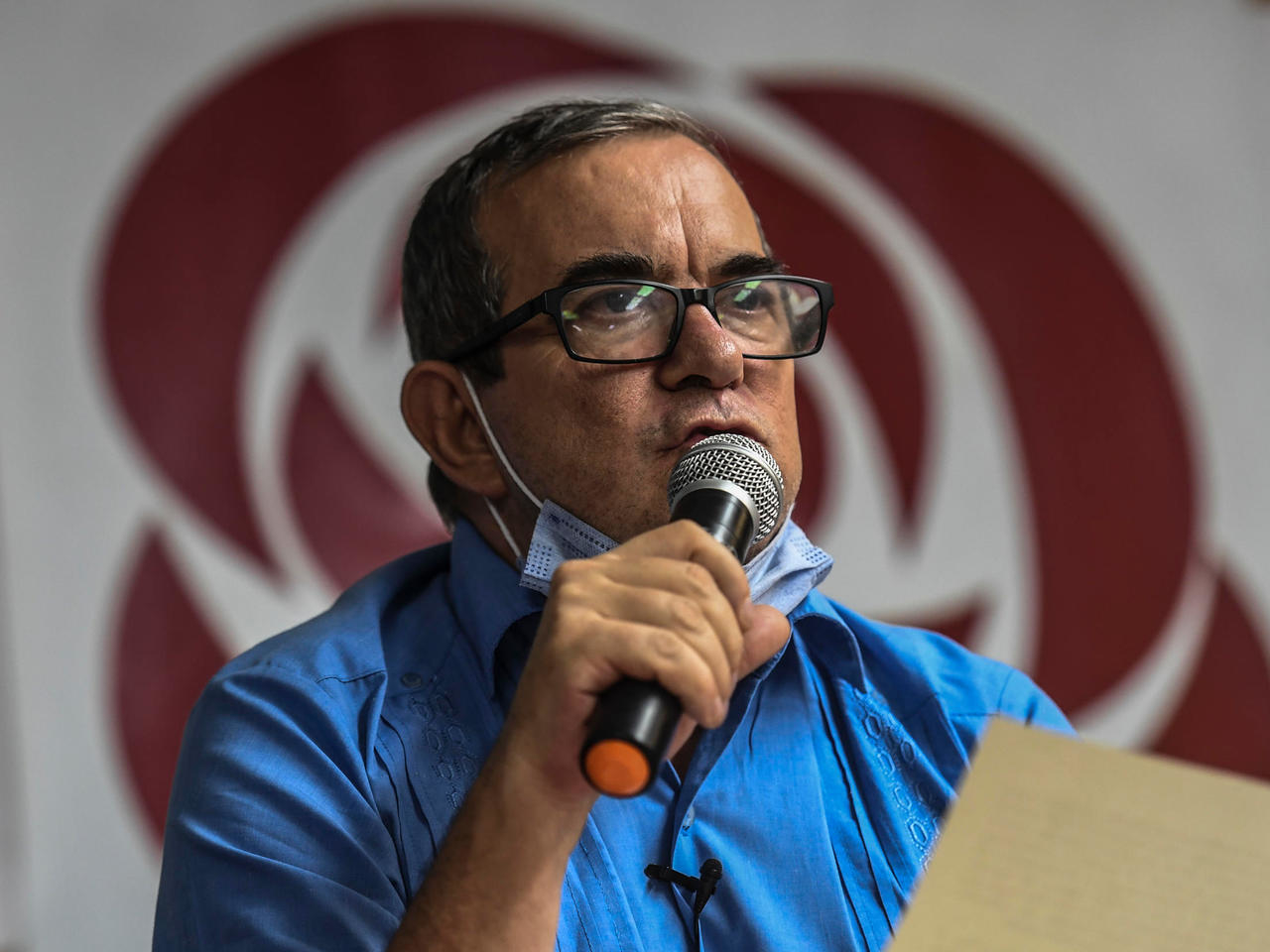Tribunal charges former FARC members with war crimes

Eight high-ranking members of Colombia's now-defunct FARC guerilla movement, including serving politicians, are being charged with war crimes for kidnapping more than 21,000 people during a decades-long civil conflict, a court said Thursday.
The eight belonged to the secretariat of the FARC, its highest decision-making body, and include Rodrigo Londono, who is now head of the Common People's Party, the political party that arose from the FARC after the signing of the 2016 peace pact that largely ended more than 50 years of fighting.
Also targeted are Pablo Catatumbo and Julian Gallo, who occupy two of the ten seats reserved for the militant group-turned-political party under the peace agreement.
Another member of the FARC high command, Ermilo Cabrera, is also on the list, but he died on Wednesday.
"Depriving people of their liberty and placing conditions on their release is a war crime, specifically the taking of hostages," said Judge Julieta Lemaitre of Colombia's Special Jurisdiction for Peace, a tribunal created to try FARC members and soldiers for crimes committed during the conflict.
The charge sheet also includes crimes against humanity and "other war crimes related to the treatment of hostages, such as murder, torture, cruel treatment, attacks on personal dignity, sexual violence and forced displacement," said the ruling.
The decision the tribunal's most far-reaching since its creation in 2017 was made after hearing testimony from 257 ex-combatants and more than 1,000 kidnapping victims and taking into account information gathered by prosecutors.
John Jairo Hoyos, whose father was kidnapped by FARC in 2002 and then murdered, hailed the "excellent decision.""This gives me hope that this country, we can one day find peace, that the principle of not repeating this will be respected and that those who have been given the opportunity to re-join civilian life are fulfilling their obligations to the peace agreement," he told AFP.
The Common People's Party restated its remorse for acts committed in the past, and agreed there was "no justification for robbing any person of their liberty."
Colombian President Ivan Duque said: "We cannot have a double standard in Colombia where people who commit crimes can never again run for congress but others hold their seats despite convictions for crimes against humanity."
And retired general Luis Mendieta, who was himself held hostage by the guerillas for 11 years, said "while there is no compensation, there is no justice," and called for "guarantees" such crimes would not be committed again.
- More than believed -
Duque in 2018 led a failed bid to modify the peace accords to secure harsher penalties for former FARC fighters.
During its prolonged battle for power, the FARC kidnapped people to extort financial and political settlements.
The charge sheet states 21,396 people were deprived of their liberty by FARC fighters between 1990 and 2016, "a number significantly higher than previously thought."
Many, including soldiers, police members or politicians such as the Franco-Colombian Ingrid Betancourt, spent as many as ten years locked up before being rescued or freed.
The court document said nine percent of the hostages were never seen again, and another three percent were confirmed murdered and had their remains sent to their families.
Former FARC fighters who plead guilty to the charges will not be jailed but will receive an alternative penalty under the negotiated provisions.
Those who refute the allegations will face a criminal trial and risk prison sentences of up to 20 years.
Last Sunday, the FARC officially changed its name to the Common People's Party to move away from the acronym that identified the Marxist rebel force for decades.
After the 2016 peace pact, the Revolutionary Armed Forces of Colombia transitioned to a political party called the Common Alternative Revolutionary Force both of which went by FARC.The former rebels have been divided since their disarmament.
Although the majority of some 13,000 former FARC combatants and militiamen accepted the peace agreement, dissident factions have kept up or retaken arms.


Leave Comment